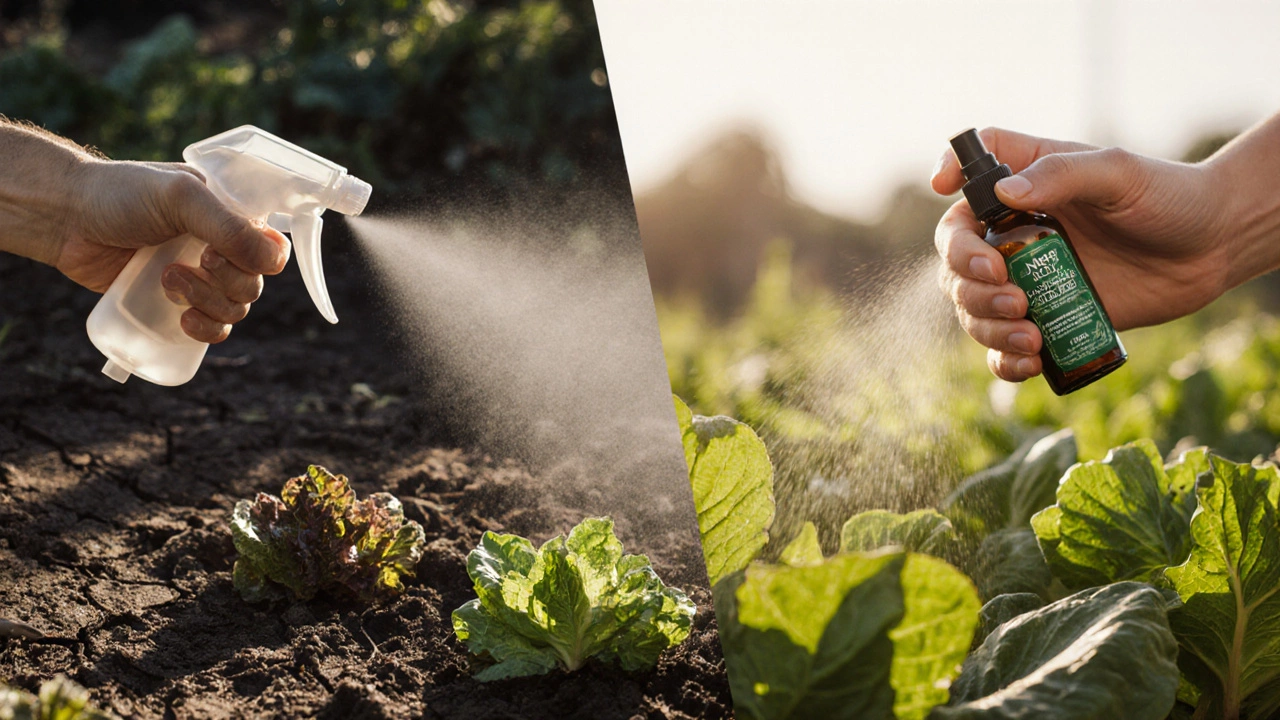Biodegradable Pesticides – Sustainable Pest Management
When working with biodegradable pesticides, pest‑killing products that decompose naturally without harming soil, water or beneficial insects. Also known as eco‑friendly pesticides, they let farmers keep crops healthy while avoiding long‑lasting chemical residues. In the same breath, organic farming, a cultivation approach that avoids synthetic chemicals and focuses on natural inputs relies heavily on these safe pest solutions. If you’ve ever wondered how natural pest control, methods that use predators, botanicals or physical barriers instead of harsh chemicals fits into a modern garden, the answer is simple: it’s the backbone of a pesticide that disappears after it does its job. By pairing biodegradable formulas with crop rotation and companion planting, you create a loop where each element supports the other, keeping weeds and insects in check without polluting the field.
How Eco‑Friendly Cleaning Connects to Plant Health
You might think cleaning your home has nothing to do with protecting a lettuce field, but eco‑friendly cleaning, the use of plant‑based, non‑toxic cleaners for household surfaces shares the same philosophy as biodegradable pesticides. Both aim to reduce harmful chemicals that could leach into groundwater or drift onto crops. When you swap a conventional glass cleaner for a vinegar‑based solution, you’re cutting down the amount of synthetic surfactants that end up in the sewage system, which eventually makes its way to farms. This link illustrates the semantic triple: eco‑friendly cleaning influences the demand for biodegradable pesticides, and the demand pushes manufacturers toward greener formulations. Moreover, sustainable agriculture, farming practices that maintain productivity while preserving environmental health benefits from reduced runoff, keeping soil microbes happy and supporting the very predators used in natural pest control. In short, a cleaner home contributes to a cleaner field.
What does this mean for you in practical terms? First, look for pesticide labels that mention "biodegradable," "compostable," or "rapidly broken down." Second, pair those products with integrated pest management steps like planting marigolds to deter nematodes or installing bat houses to attract insect‑eating mammals. Third, choose household cleaners that list plant‑derived ingredients – a habit that cuts down overall chemical load. When you combine these actions, you help preserve soil health, protect pollinators, and keep waterways clear of toxins. The result is a cycle where every small change supports the next: better cleaning leads to less chemical pressure on farms, which encourages the use of biodegradable pest solutions, which in turn reinforces the push for greener cleaning products. Below you’ll find a range of articles that dive deeper into each of these ideas, from DIY natural cleaners to step‑by‑step guides on using biodegradable pesticides safely. Keep reading to discover tips, tricks, and real‑world examples that will help you make smarter, greener choices at home and in the garden.

Eco-friendly pesticides: top natural options for garden pest control
Learn which natural, biodegradable pesticides work best for garden pests, how to apply them safely, and how to integrate them into an eco‑friendly pest management plan.
Read More